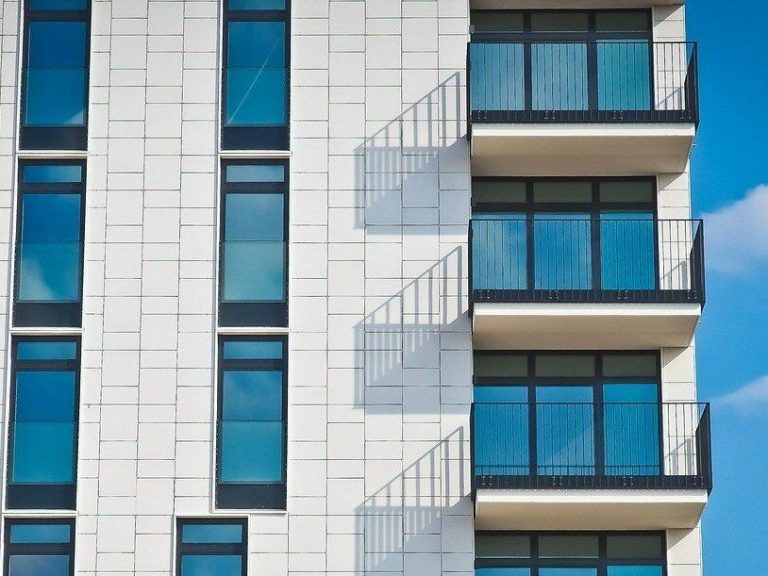Petru threatens to send flippers abroad. Internet users: “Introduce immediately!” (opinion)

If it turns out that because of the new tax proposed by the Left – and the future of which is not certain at all, because it will have to convince the coalition partners to accept the idea – the flippers making the most turnover will go abroad, few people will really cry for them. Only Ryszard Petru hasn't understood it yet.
Ryszard Petru is a born economic liberal and since returning to the Sejm, he has been fighting for the position of the most pro-entrepreneurial MP of this term. First, he advocated for loosening the ban on trading on Sundays, and when the left-wing-ruled Ministry of Family, Labor and Social Policy clearly declared that it would not work on a project to increase the number of trading Sundays, he prepared a draft of an appropriate act. When submitting it, he convinced journalists that the changes were important for social and economic reasons. He apparently did not consult trader organizations: the Polish Chamber of Commerce does not support the proposal to increase the number of trading Sundays.
“When it comes to shopping Sundays, the majority of micro, small and medium-sized entrepreneurs in the trade industry, including those associated with the Polish Chamber of Commerce, accept the current status quo,” she wrote in the press release.
Petru warns that flippers may leave Poland
Over the weekend, Ryszard Petru defended flippers, i.e. entrepreneurs who buy cheap apartments, renovate them and sell them at a higher price. They operate on the primary and secondary markets, although more often on the latter. The activity of flippers is popularly believed to be one of the factors increasing apartment prices, because with cash they are able to quickly finalize the purchase and even get some discounts. After some time, renovated apartments hit the market at a higher price, because firstly, their standard has increased, and secondly, several months have passed from purchase to sale, and in large cities this is enough time for real estate prices to go up on their own.
Speculators, some say about them. Magdalena Biejat, the Left's candidate for the president of Warsaw, announced that she would submit a bill to the Sejm that would limit the activities of pinball machines. She did not want to talk about details, but revealed that one of the proposals includes a tax on flipping. Ryszard Petru defended flippers and wrote on “X” that “the idea of taxing flippers and calling them speculation shows a misunderstanding of the topic and is detrimental to the entire economy.”
Next, the Polish 2050 MP argues that flippers are entrepreneurs who take business risks because they have no guarantee that they will sell the premises after renovation at a profit.
Flippers are cluttering up our mailboxes
“Critics don't understand that any additional tax is always passed on to the final customer. Taxing flips means higher housing prices,” Petru describes his perspective. Finally, he threatened that if this or the next government taxes flippers, they will move abroad.
“And who, but especially the Left, should care about budget revenues,” sums up the MP.
The warning about the possibility of flippers escaping from Poland amused some Internet users. These are some comments under Ryszard Petru's entry:
-
“Does this mean that if we tax apartment flipping, flippers will move abroad? So what are we waiting for? Move in immediately!”
-
“It won't work like that. If taxes are higher, the flipper will simply not buy the apartment and will not artificially increase its price.
-
“Flippers speculate on apartments. There is a limited number of apartments, flippers buy them, renovate them cheaply and sell them at a much higher price. It would be better if the buyer bought the apartment and renovated it (ordered renovation). “Ordinary buyers today have no chance against flippers.”
Someone else joked that he couldn't wait until German mailboxes would be cluttered with handwritten notes on which a young couple / Ania with a cat / Paweł and Ania informed that they would buy an apartment “in this area” and asked for contact information. Probably every resident of a larger city takes out such a note from the mailbox at least once every few months. Let's make no mistake: these are no “young married couple”, but flippers looking for cheap apartments to buy. They post notes because they know that some older people do not use the Internet and do not advertise the sale of their apartments there. If they take out a leaflet that gives the impression that it was written by hand and is often accompanied by a drawing of a smiling family, there is a chance that if they want to sell their apartment, they will first contact a “young married couple” and not a real estate agent.
Speculation or honest business?
In the flipping business, the basic rule is that you have to buy cheaply, renovate it cheaply and quickly, and sell it without sentimentality. Wait a minute, someone will say. After all, by its nature, trade involves selling goods at a price higher than the purchase price. And yes, it's true, but real estate is a special “commodity”. This particularity is due to limited availability. For several months now, significantly fewer apartments have been put on the market than the demand indicates. Demand exceeding supply drives up prices. And then they come in, the flippers with cash. A family using a loan that takes at least a month is less attractive to the seller than an entrepreneur who is ready to make an appointment with a notary tomorrow.
Are there no benefits to the flipper business? I wouldn't condemn them out loud: I appreciate that they undertake renovations of very damaged apartments, which buyers who don't deal with real estate on a daily basis would probably not undertake. In this way, flippers bring apartments that seem to have no potential back to the sales market. This does not change the fact that I would not like to buy an apartment from a flipper, because I would be afraid of the quality of the renovation and the materials used. A flat is a long-term purchase and sometimes you really shouldn't accept half-measures.
Flipper, who is that?
I keep talking about pinball machines – who exactly am I talking about? No one has done extensive research yet, so we don't have enough data to paint a picture of a typical pinball player. We don't even know how many of them operate in Poland. It is certainly a heterogeneous group: in the absence of a strict definition, we can call anyone who has bought two or three apartments in their life and resold them after renovation a flipper. For many people, this is an additional activity: they buy an apartment with their savings, renovate it, often on their own, and sell it. They can be said to take financial risk because they freeze their cash for many months and have no guarantee that they will earn as much as they expected.
On the other side, there are professional flippers who are able to buy several dozen apartments a year (often at a lower price, because they can convince older owners to sell using cards with drawings of smiling families), renovate them with the help of permanently cooperating renovation teams and quickly introduce to the market. If it turns out that because of the new tax proposed by the Left – and the future of which is not certain at all, because it will have to convince the coalition partners to accept the idea – the flippers making the most turnover will go abroad, few people will really cry for them. Only Ryszard Petru hasn't understood it yet.






